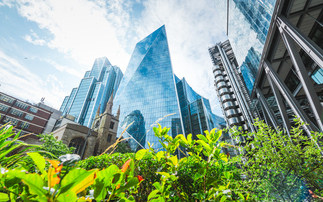Behind the bleak geopolitical headlines, the catalysing effect of the Paris Agreement on the world's most influential businesses is beginning to be felt
What follows is an unashamedly optimistic take on the current state of things. Believe me, I am painfully aware of how this analysis could be steamrollered in the coming years, months, weeks, days, and...
To continue reading this article...
Join BusinessGreen
In just a few clicks you can start your free BusinessGreen Lite membership for 12 months, providing you access to:
- Three complimentary articles per month covering the latest real-time news, analysis, and opinion from Europe’s leading source of information on the Green economy and business
- Receive important and breaking news stories via our daily news alert
- Our weekly newsletter with the best of the week’s green business news and analysis








